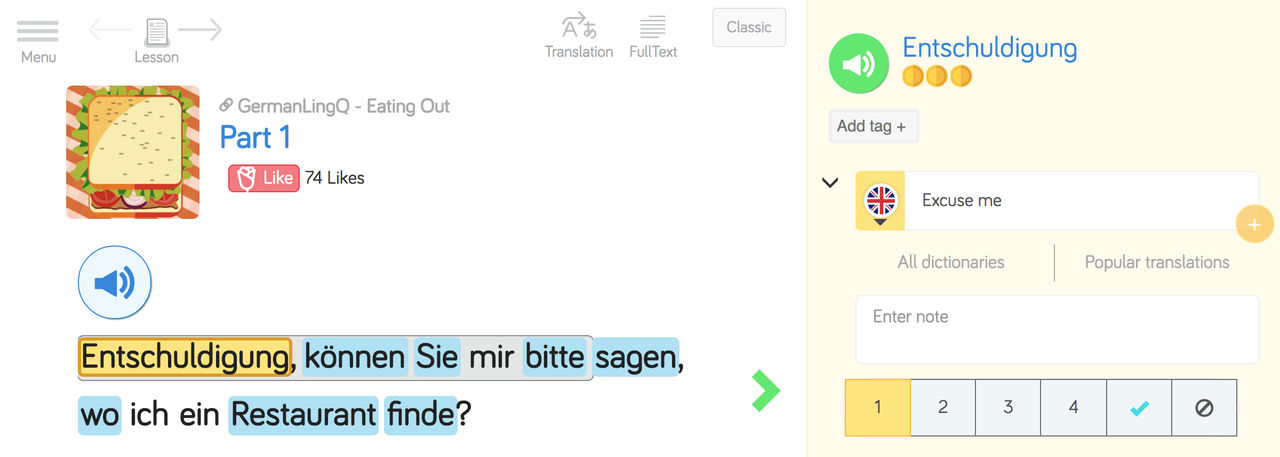Wrapping Your Head Around German Prepositions
How could some of the shortest words in a language cause so much trouble?
Seriously – a bunch of these guys are just two letters long. Most are one syllable.
But it’s true that German prepositions can be confusing at their best and maddening at their worst.
Unfortunately, when it comes to learning as an English speaker, you’re going to have to kind of change the way you think about prepositions entirely.
Once you manage that, though, you’ll find that the prepositions fit so naturally in your German that you can’t live without them.

The first thing to understand is that German prepositions are very closely related to cases. If you’re still not clear about what the German cases are and what they do, it’s a good idea to brush up on that concept first.
The second thing is that they’re everywhere.
This can be a blessing and a curse. On the one hand, if you’re not confident using the prepositions, you’ll find yourself hesitating with every sentence you produce.
But on the other hand, if you can learn prepositions in set phrases or chunks, you’ll have a much easier time and acquire the language more naturally than just learning a set of rules.

So how about those cases?
We can divide German prepositions up into groups based on how they relate to cases. Each preposition modifies the noun after it, applying one of three cases.
There are no prepositions that keep the nominative case – there’s one out of the way already! Plus, in informal speech and writing you’ll often see the Genitive prepositions taking the Dative case. Easier and easier!
Here are the German accusative prepositions:
bis (until, up to)
durch (through)
entlang (along)
für (for)
gegen (against, towards)
ohne (without)
um (around)
The genitive prepositions:
anstatt, statt (instead of)
trotz (despite)
während (during)
wegen (because of)
And the dative ones:
aus (out of)
ausser (except for)
bei (by, at)
mit (with)
nach (to, after)
seit (since)
von (from)
zu (to)
You can actually sing these dative prepositions, in order, to the tune of the Blue Danube Waltz. Can you come up with your own song for the others?

Essentially, when you commit these prepositions to memory, you should think of them as being intrinsically accusative, dative, or genitive. So much so, in fact, that they affect the words after them!
Here are two examples:
Der Wald ist hier. Ich will durch den Wald laufen.
The forest (nominative) is here. I want to walk through the forest (accusative).Ich bin gerade aus dem Wald gekommen.
I just came out of the forest (dative).
And this sort of makes sense, right? The nominative is for the subject of the sentence. So when we (the subject) walk through or come out of a forest, it can’t be the subject. It’s not the object either – but instead we’re marking an additional, semantically separate part of the sentence.
Two-way German Prepositions
There’s another set of prepositions that require a little bit more mind-bending. Once you get the hang of thinking in this way, though, you’ll find the system to be logical and regular.
These are called two-way prepositions, because sometimes they take the accusative and sometimes they take the dative. More on that soon:
an (on, at)
auf (at, on top of)
hinter (behind)
neben (next to)
in (in)
über (over)
unter (under)
vor (in front of)
zwischen (between)
What do you notice about this list of German prepositions? They’re all related to space! There’s nothing about time, nothing about other relationships like instead of.
That’s a crucial part of why they take two different cases.
When using these prepositions, the accusative is used for motion, while the dative is used for location. Let’s illustrate this with a few examples.
We’ll start with the preposition in. In English, we can have a sentence like this with two meanings.
She walked in the room.
This could mean “She walked into the room from outside” or “She walked around inside of the room.”
But in German, we can solve this ambiguity instantly by taking a look at what motion we want to express with the preposition.
Sie läuft in das Zimmer. (she was outside before)
Sie läuft in dem Zimmer. (she was in the room the whole time)
Let’s try another example, with a sentence that’s not so ambiguous.
Die Katze springt unter den Tisch. (The cat jumped [from some other location] under the table)
Die Katze isst unter dem Tisch. (The cat is eating under the table, no movement involved)
So when you’re using one of these mixed prepositions, think to yourself about what kind of motion is being described in your idea. By the way, many languages around the world have different ways to discuss space and motion like German does, so learning this concept makes it even easier to acquire those other languages!
There’s one last thing I want to mention here, and that’s the German prepositions that come linked with verbs.
Just like English (and in fact all the Germanic languages), German is full of verb-preposition pairs that add an extra layer of meaning to the verb.

One example is “sich freuen über” (to be happy about) which takes the accusative. Another is “schmecken nach” (to taste like) which, since nach is a dative preposition, always takes the dative.
There are scores, if not hundreds of these. But the good news is, you don’t have to change much about your learning.
You just have to learn the verb, the preposition, and the case it takes all at once, instead of just learning the definition.
***
All this information appears in any good German dictionary. You don’t need to go hunting for it – they know what learners want.
And the more natural native German you expose yourself to, the more these patterns will sink in. After a few years of reading books, watching videos, and having conversations, these prepositions will seem perfectly natural when they go with their cases.
Puzzled about where to find interesting and engaging German content? Look no further than LingQ. The extensive German audio and text here on this very website is plenty to get you immersed in the language–and you’ll find yourself using the German prepositions like a pro in no time.
Check out LingQ today to discover how to learn German fast using content you love!

***
Alex Thomas started learning German on his own and took it on a whirlwind tour through the classroom, the Internet, and the streets of Europe. He speaks four languages every day and is always ready for more.
